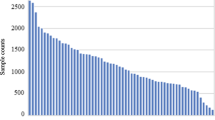Abstract
Ambient Intelligence (AmI) is a new paradigm that redefines interaction between humans, sensors and flow of data and information. In AmI, environment is more sensitive and more responsive to the user who acts spontaneously in the foreground, while sensors, machines and intelligent methods act in background. Behind the AmI interfaces, a huge volume of data is collected and analysed to make decision in real time. In the field of health care, AmI solutions prevent the patients from emergency situations by using data mining techniques. This paper assess the performance of deep learning against traditional dimensionality reduction and classification algorithms for healthcare monitoring in a hospital environment. An ensemble method is proposed using three classifiers on a reduced version of the dataset, where the dimensionality reduction technique is based on deep learning. The evaluation based on different performance metrics like accuracy, precision, recall and f-measure illustrated reliable performance of the proposed ensemble method.
Access this chapter
Tax calculation will be finalised at checkout
Purchases are for personal use only
Similar content being viewed by others
References
https://www.worldlifeexpectancy.com/country-health-profile/tunisia
Agrawal, R., Ram, B.: A modified k-nearest neighbor algorithm to handle uncertain data. In: 2015 5th International Conference on IT Convergence and Security (ICITCS), pp. 1–4 (2015)
Breiman, L., Friedman, J., Stone, C., Olshen, R.: Classification and Regression Trees. Taylor & Francis, Milton Park (1984)
Breiman, L.: Bagging predictors. Mach. Learn. 24(2), 123–140 (1996)
Breiman, L.: Random forests. Mach. Learn. 45(1), 5–32 (2001)
Brewer, J.K., Hills, J.R.: Univariate selection: the effects of size of correlation, degree of skew, and degree of restriction. Psychometrika 34(3), 347–361 (1969)
Charte, D., Charteb, F., Garciaa, S., del Maria, J., Jesusb, F.H.: A practical tutorial on autoencoders for nonlinear feature fusion: taxonomy, models, software and guidelines. Inf. Fusion 44, 78–96 (2018)
Cortes, C., Vapnik, V.: Support-vector networks. Mach. Learn. 20(3), 273–297 (1995)
Cover, T., Hart, P.: Nearest neighbor pattern classification. IEEE Trans. Inf. Theory 13(1), 21–27 (1967)
Cox, D.R.: The regression analysis of binary sequences. J. Roy. Stat. Soc. Ser. B 20(2), 215–242 (1958)
Freund, Y.: Boosting a weak learning algorithm by majority. Inf. Comput. 121(2), 256–285 (1995)
Freund, Y., Schapire, R.E.: A decision-theoretic generalization of on-line learning and an application to boosting. J. Comput. Syst. Sci. 55(1), 119–139 (1997)
Pearson, K.: LIII. on lines and planes of closest fit to systems of points in space. Lond. Edinb. Dublin Philos. Mag. J. Sci. 2(11), 559–572 (1901)
Geurts, P., Ernst, D., Wehenkel, L.: Extremely randomized trees. Mach. Learn. 63(1), 3–42 (2006)
Hotelling, H.: Analysis of a complex of statistical variables into principal components. 24 (1933)
Kotsiantis, S.: Supervised machine learning: a review of classification techniques. 31, 249–268 (2007)
Liu, S., Liu, S., Cai, W., Pujol, S., Kikinis, R., Feng, D.: Early diagnosis of Alzheimer’s disease with deep learning. In: 2014 IEEE 11th International Symposium on Biomedical Imaging (ISBI), pp. 1015–1018 (2014)
Nweke, H.F., Teh, Y.W., Al-garadi, M.A., Alo, U.R.: Deep learning algorithms for human activity recognition using mobile and wearable sensor networks: state of the art and research challenges. Expert Syst. Appl. 105, 233–261 (2018)
Salih, A.S.M., Abraham, A.: Novel ensemble decision support and health care monitoring system. J. Netw. Innov. Comput. 2, 041–051 (2014)
Salon, A., Franco, A., Craddock, C., Buchweitz, A., Meneguzzi, F.: Identification of autism spectrum disorder using deep learning and the ABIDE dataset. NeuroImage: Clin. 17, 16–23 (2017)
Vincent, P., Larochelle, H., Bengio, Y., Manzagol, P.A.: Extracting and composing robust features with denoising autoencoders (2008)
Author information
Authors and Affiliations
Corresponding author
Editor information
Editors and Affiliations
Rights and permissions
Copyright information
© 2020 Springer Nature Switzerland AG
About this paper
Cite this paper
Aouedi, O., Bach Tobji, M.A., Abraham, A. (2020). An Ensemble of Deep Auto-Encoders for Healthcare Monitoring. In: Madureira, A., Abraham, A., Gandhi, N., Varela, M. (eds) Hybrid Intelligent Systems. HIS 2018. Advances in Intelligent Systems and Computing, vol 923. Springer, Cham. https://doi.org/10.1007/978-3-030-14347-3_10
Download citation
DOI: https://doi.org/10.1007/978-3-030-14347-3_10
Published:
Publisher Name: Springer, Cham
Print ISBN: 978-3-030-14346-6
Online ISBN: 978-3-030-14347-3
eBook Packages: Intelligent Technologies and RoboticsIntelligent Technologies and Robotics (R0)




